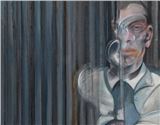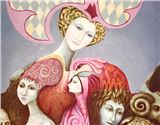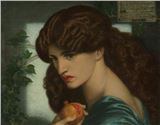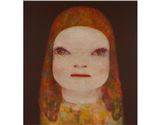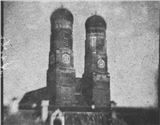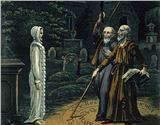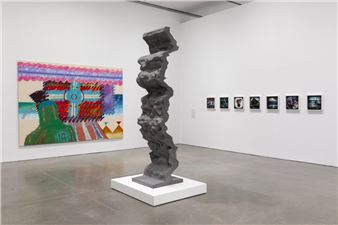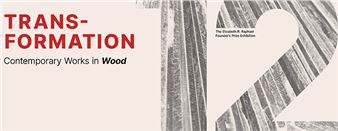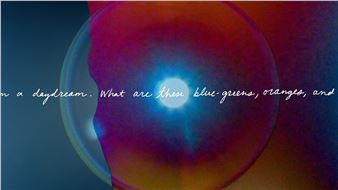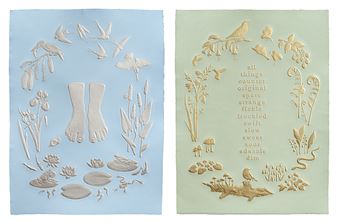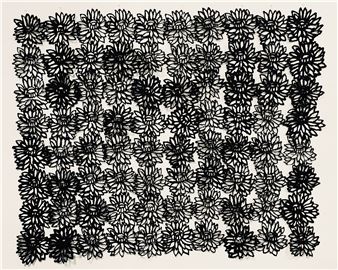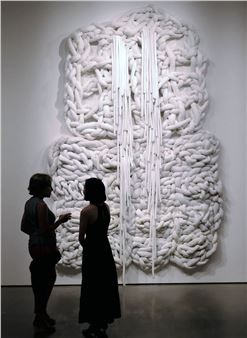Lady Bug: An Installation by Jennifer Angus
Created explicitly for the Don Russell Clayton Gallery, the large-scale installation Lady Bug celebrates pioneering women in entomology— the Madame Dragonfly, Moth Queen, and Termite Lady sound like superheroes of the DC comic book universe, but they are the pseudonyms of women entomologists Cynthia Longfield (1896-1991), Alice Balfour (1850-1936) and Margaret Collins (1922–1996). Other than clean air and water, insects which are the primary material of Angus’ installations, are ground zero for human survival on our planet. Her works often explore issues related to the environment and the vital role insects play within it, encouraging individuals to raise awareness, advocate on issues, and build momentum toward collective change.
Drawing upon her background in textile design, the artist places insects upon walls in patterns that mimic textiles and wallpaper. This strategy lulls the viewer into complacency, for at a distance, the designs suggest an interior, perhaps even a domestic space. However, upon discovering that the ornate patterns are formed of insects, viewers’ feelings typically fluctuate between incredulity, amazement, and occasionally terror. Herein lies the power of the work as the observer is confronted with considering insects in a new light.
Statement on working with insects : We have more information at our fingertips than ever before, and yet the centuries-old tradition of ignoring or destroying knowledge continues. Climate change and colony collapse (the death of millions of honeybees) are devastating facts of contemporary life, and all are areas in which individuals, one by one, can make a difference. Thoughts and prayers are not enough. There is much to be gained by studying and appreciating insects, noting that collective transformational changes are possible for one small individual at a time.
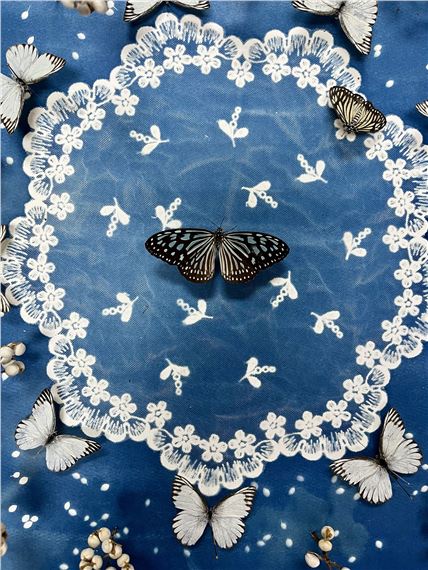
Recommended for you
Created explicitly for the Don Russell Clayton Gallery, the large-scale installation Lady Bug celebrates pioneering women in entomology— the Madame Dragonfly, Moth Queen, and Termite Lady sound like superheroes of the DC comic book universe, but they are the pseudonyms of women entomologists Cynthia Longfield (1896-1991), Alice Balfour (1850-1936) and Margaret Collins (1922–1996). Other than clean air and water, insects which are the primary material of Angus’ installations, are ground zero for human survival on our planet. Her works often explore issues related to the environment and the vital role insects play within it, encouraging individuals to raise awareness, advocate on issues, and build momentum toward collective change.
Drawing upon her background in textile design, the artist places insects upon walls in patterns that mimic textiles and wallpaper. This strategy lulls the viewer into complacency, for at a distance, the designs suggest an interior, perhaps even a domestic space. However, upon discovering that the ornate patterns are formed of insects, viewers’ feelings typically fluctuate between incredulity, amazement, and occasionally terror. Herein lies the power of the work as the observer is confronted with considering insects in a new light.
Statement on working with insects : We have more information at our fingertips than ever before, and yet the centuries-old tradition of ignoring or destroying knowledge continues. Climate change and colony collapse (the death of millions of honeybees) are devastating facts of contemporary life, and all are areas in which individuals, one by one, can make a difference. Thoughts and prayers are not enough. There is much to be gained by studying and appreciating insects, noting that collective transformational changes are possible for one small individual at a time.
Artists on show
Related articles
In Tricia Wright: The Naturalist, Wright’s works are a personal celebration and inquiry into her relationship with nature, the passing of time and the value of human touch.

 ARTISTS
ARTISTS
